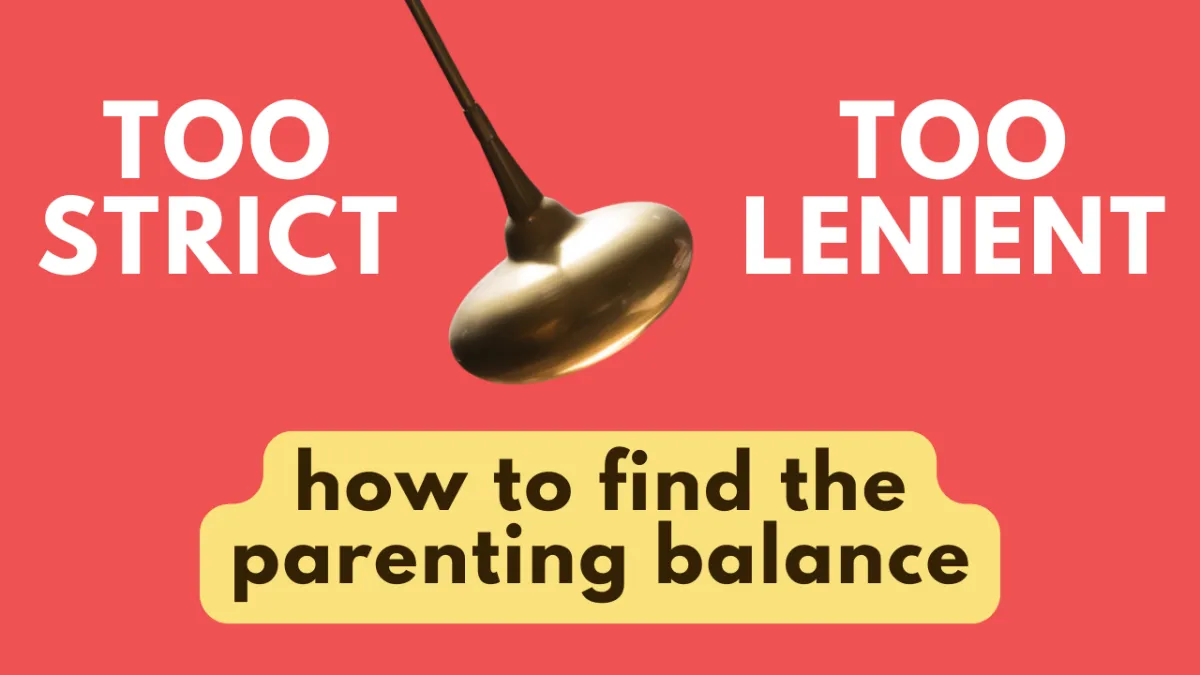
Is Self-Doubt Making You A Pendulum Parent


You just enforced a bedtime rule with your 4-year-old… and now they’re crying.
You’re standing there wondering, Was that too harsh? Am I turning into one of those strict parents?
If you grew up with little to no boundaries, this moment might feel painfully familiar.
You want better for your child but suddenly you’re swinging in the opposite direction: from zero structure to constant second-guessing.
Welcome to pendulum parenting and it’s more common than you think.
Let’s talk about what it is, why it happens, and how to stop oscillating between extremes so you can parent with calm, confident balance.
Recognizing the Overcorrection
If you were raised with permissiveness—no bedtime, no chores, no consequences then structure might feel unnatural. So when your child resists, your brain panics.
You may:
Jump to harsh consequences (“Clean up or all your toys are gone!”)
Overreact to pushback as disrespect
Doubt every decision you make
This is fear-based parenting, not balanced leadership.
Before you respond, ask:
“Am I reacting to my child—or to my own childhood?”
This question alone can interrupt the cycle.
What Balanced Structure Looks Like
The antidote to pendulum parenting is authoritative parenting not authoritarian, not permissive.
Let’s break it down:
An authoritarian parent might say, “Because I said so,” without offering any explanation.
A permissive parent tends to say, “Well… okay, just this once,” avoiding clear boundaries.
In contrast, an authoritative parent says, “Here’s our rule, and here’s why it matters,” combining structure with understanding.
Instead of forcing compliance, authoritative parenting teaches:
Empathy: “I know it’s hard to stop playing.”
Boundaries: “We clean up our toys to care for our things.”
Autonomy: “Do you want to clean up now or after dinner?”
Structure without warmth leads to fear.
Structure with warmth leads to cooperation and trust.
Finding Your Balance
Ask yourself:
Is this about safety, respect, or responsibility?
Have I explained the “why” behind the rule?
Am I holding the boundary without shame or anger?
If the answer is yes, you’re not being too strict. You’re being intentional.
Example:
Your child talks back when asked to turn off the TV.
You say: “That tone doesn’t work for our family. Try asking again respectfully.”
You’re not ignoring the behavior.
You’re teaching emotional regulation while holding your ground.
Start small like bedtime or toy cleanup. Practice being firm and kind until it feels natural.
Timeline and Results
This shift doesn’t happen overnight.
You’ll have strict days. You’ll have permissive days. That’s part of the process.
But over time:
Your discomfort with limits fades
Your child becomes more secure
Cooperation replaces constant power struggles
Research shows that authoritative parenting leads to:
Better emotional regulation
Higher self-esteem
Stronger social skills
If you're doing this work, you’re already ahead.
Your awareness of how you were parented is a strength not a weakness.
Ready to Break the Cycle With Confidence?
If you’re tired of second-guessing and want to feel grounded in your parenting decisions, I’ve got something for you.
Join me for the free workshop: Confident Parenting Made Simple
Learn 5 essential strategies that help you build structure, emotional safety, and lifelong connection.
